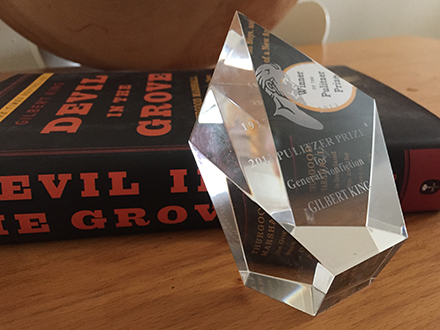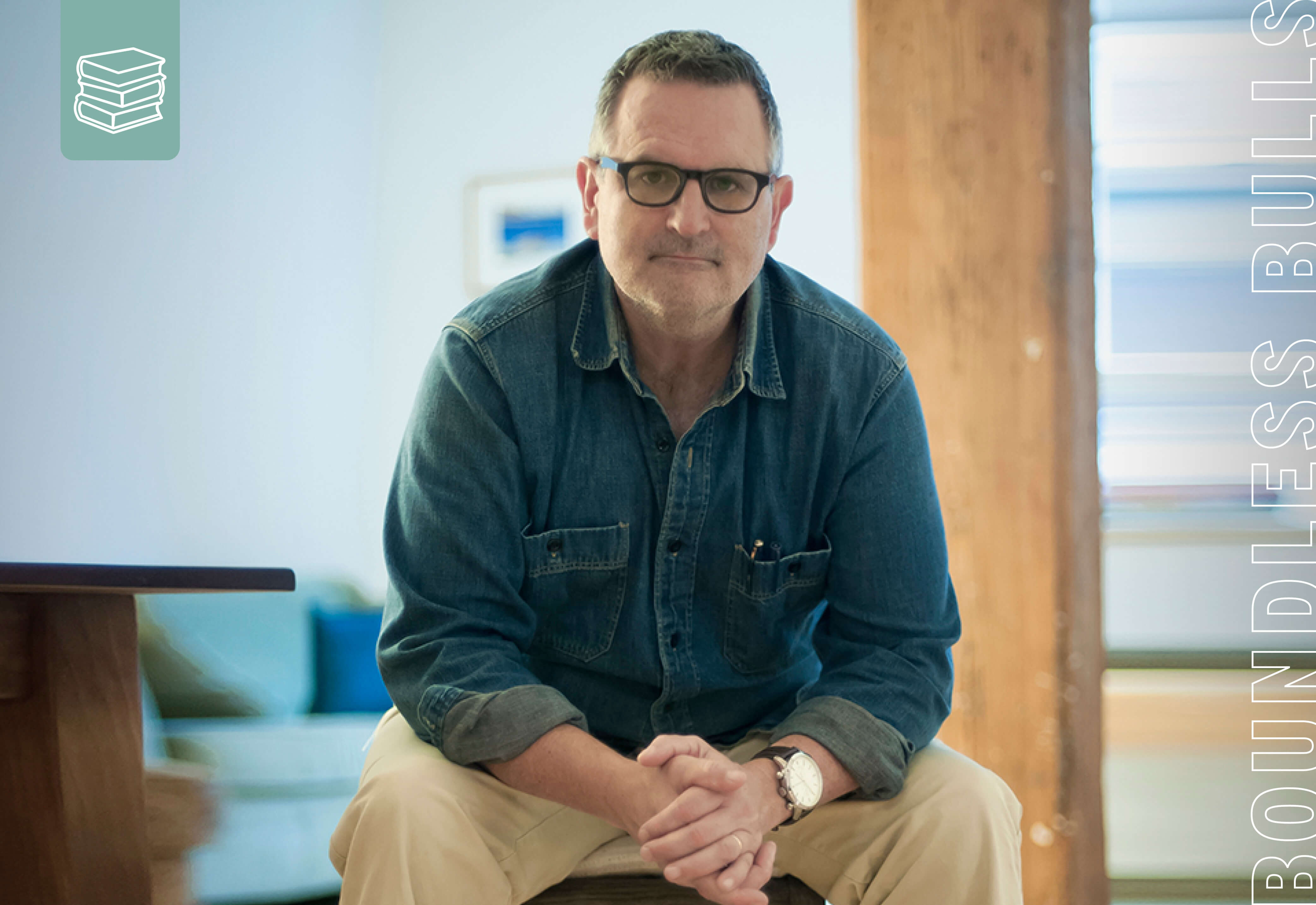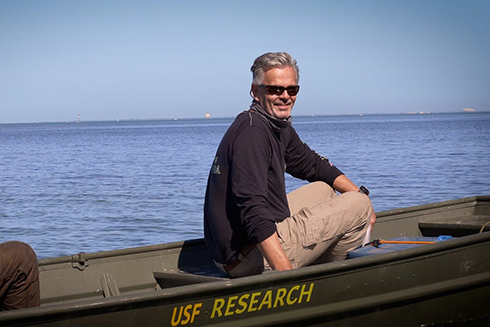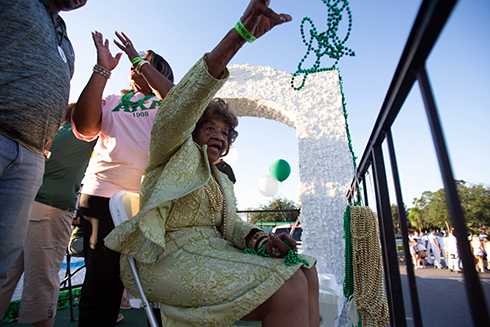Gilbert King arrived at USF in 1981 with little interest in academics and the high school GPA to prove it. No problem. He planned to hit baseballs, not books, catch the attention of the pros and launch his big league career.

King, center, plays second base in Schenectady, N.Y., in 1980.
“I was delusional. I went to the Bulls tryouts that fall and I was way out of my league,” he says. “My dream was over at 19 and I was devastated. I was looking for a form of escapism, I think, so I started hanging out at the Library and reading the newspapers from around the world. That led to magazines and to books, and pretty soon, I was reading voraciously. I fell in love with stories.”
King enrolled in literature and writing classes. He got a storytelling job as a comic with The Funny Farm out of Orlando. He was close, so close, to getting his bachelor’s in English -- just two math classes to go -- when he left school.
“I had a girlfriend whose relative died and left a New York City apartment we could live in. We thought, ‘Wouldn’t it be fun to live in New York City?’ So we went.”
King became a freelance writer and photographer, working his way into top-tier publications including The New York Times and Vogue magazine. In 2008, he published his first book: The Execution of Willie Francis: Race, Murder and the Search for Justice in the American South.
It didn’t sell.

Four years later, he tried again with another true-life narrative about crime and punishment in the Jim Crow era. Reviewers liked Devil in the Grove: Thurgood Marshall, the Groveland Boys, and the Dawn of a New America, but it, too, failed to sell. King desperately wanted to keep writing books, but with two non-starters behind him, he was certain no publisher would give him another chance.
And then, a year ago this month, he got a life-changing text message from a friend. The 2013 Pulitzer Prizes had just been announced and there on the list, King saw his own name. He didn’t even know he’d been nominated. Devil in the Grove, the winner for general non-fiction, became a New York Times best-seller.
Last December, King returned to USF. This time, he left with a degree -- an honorary doctor of humane letters.
Q. What got you interested in writing about blacks and criminal justice in the South?
A. In college, the books I tended to read were about injustices and men falsely accused and sentenced to prison -- Papillon, The Count of Monte Cristo. I was really drawn to prison escapes and correcting the wrong.
Growing up in Schenectady, N.Y., I was mostly oblivious to issues of race. It was years later, once I started doing the research, that I came to understand, with horror, what had happened. It was shocking that my country had these laws and systems to suppress African Americans. From a storytelling point of view, these underdogs and what they had to do to succeed captured my imagination.
Q. Were you profoundly influenced by anything or anyone at USF?
A. I still have the voice of [the late] Kenneth Kay in the back of my head when I write. He was a kind of curmudgeonly professor; I had him for expository writing. He’d look at what you’d written and say, “What does that even mean?” “What are you trying to say?” I wrote a story about boxing I thought was pretty good, and one day he told the class, “Today we’re going to read a story by Gilbert.” I thought, “He liked it!” The first two words were, “Throughout history” and he read that and stopped. He said, “Throughout history? Whose history are we talking about? I’m two words into this story and I’m lost!”
Q. Winning a Pulitzer Prize so unexpectedly must have been mind-blowing. Did it change you?
A. The Pulitzer is pretty understated; you get a certificate and, basically, a paperweight. There are no speeches involved; you just go up and get your certificate. But it’s powerful; like getting struck by lightning. The biggest impact for me was that it meant I can write another book!
Q. What advice do you have for aspiring writers?
A. Write about the things you really care about. I come across great stories and I think, “This is something I want to read about,” but I don’t want to write it myself. With a book, you’re going to spend a couple years with the subject, so it should be something you’re passionate about.
Q. How did you feel finally receiving a degree from USF?
A. It was the greatest feeling in the world. I always felt like a loser who dropped out. My mom [Dorothy King] is extremely proud of that degree.
This article was originally published by the USF Alumni Association.




